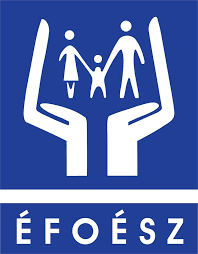 |
In 2010, a man with Down Syndrome was not allowed to vote. The man is from Hungary. The man went to court because he wanted the right to vote. He was helped by ÉFOÉSZ. ÉFOÉSZ is an organisation supporting people with intellectual disabilities. The United Nations Convention on the Rights of Persons with Disabilities (for short UN CRPD) says that people with disabilities should have the right to vote. The court said that not letting this man vote was illegal. This means that the court wanted people with disabilities to have the right to vote. |
A Hungarian man with Down Syndrome, with the support of Inclusion Europe member ÉFOÉSZ (Hungarian Association of Persons with Intellectual Disabilities), has been successful in his appeal to Strasbourg’s European Court of Human Rights after he was refused the right to vote in 2010.
Sándor Harmati was denied the right to vote, having failed to meet the criteria set out by the Hungarian state. According to Hungarian law in 2010, any person with an intellectual disability with a legal guardian is automatically refused this right. Now, after four years of waiting, the court has decided that Sándor’s complaint was right. The judgment is thus important in that it proves that no person with an intellectual disability can be automatically deprived of universal suffrage.
Hungary was one of the first European Union (EU) member states to have become signatory to the United Nations Convention on the Rights of Persons with Disabilities (UN CRPD). Despite signing the Convention which supports voting rights for all people regardless of their disabilities, Hungary is still employing a process examining the eligibility of people with disabilities to vote.

Although the judgement does not automatically bring Hungarian electoral law into line with the CRPD, it represents a major turning point in the issue of universal suffrage in Hungary.
The work carried out by ÉFOÉSZ also highlights the injustices in the Hungarian electoral system that are still carried on despite the ratification on the CRPD. Deeming people with intellectual disabilities unfit to vote on the basis of their support from a legal guardian is a practice which, in itself, has regularly been labeled as a breach of the political rights laid out by Article 29 of the UN CRPD. Moreover, NGOs and experts believe that any type of examination of the ability to vote is by definition discriminatory and false.





